Young Iranian Woman Dies After Being Beaten By Hijab Police
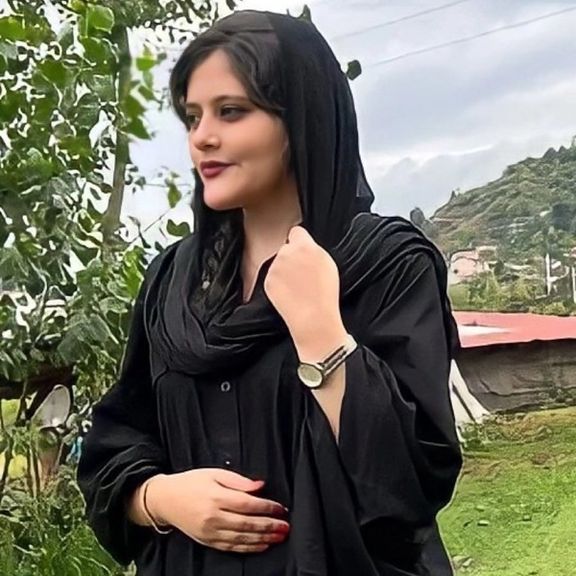
A 22-year-old Iranian woman, identified as Mahsa Amini, died Friday after being severely beaten in the head by the Islamic Republic’s “morality” police.

A 22-year-old Iranian woman, identified as Mahsa Amini, died Friday after being severely beaten in the head by the Islamic Republic’s “morality” police.
The Islamic Republic’s police told Iranian media that Amini suffered a heart attack while detained by morality police, denying reports that she had been beaten.
Iran International has learned that Amini was not feeling well and had symptoms similar to concussion when she was taken to the Vozara detention center, where the morality police take all those arrested across the capital Tehran.
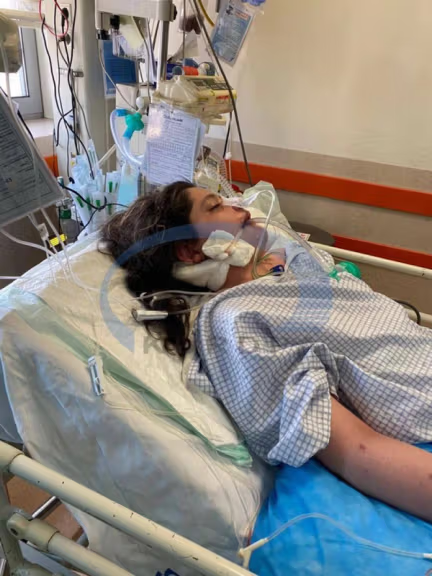
According to reports, the young girl – originally from Saqqez in Kurdistan province -- was visiting her relatives with her family in Tehran when she was arrested on Tuesday evening by hijab enforcement officers.
After protest by Mahsa's brother, who was with her when she was arrested, the officers said that they would take her to the Vozara street detentions center for a "briefing class" and will be released after an hour.
Her uncle said on Thursday that his niece’s heart was not functioning properly and her kidneys had failed, adding that her doctors told the family that they cannot do anything for her.
In recent months government and security agencies have intensified their efforts to pressure women into abiding by the hijab laws and several rounds of anti-hijab civil disobedience campaigns have followed.
Patrols by ‘morality police’ have increased on the streets and videos of violent arrests of women and girls as well as confrontations between people and hijab enforcers.
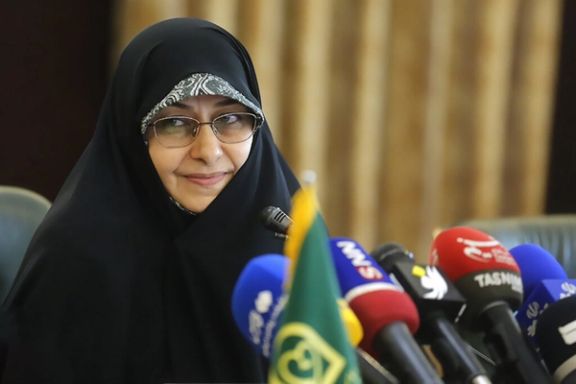
A Canadian journalist has criticized Ottawa for spreading a “lush welcome mat” for rich Iranians linked to the regime but refusing visas to relatives of Flight PS752 victims.
In an article published by the National Post Wednesday, author and journalist Terry Glavin said Ottawa has allowed an Iranian vice president’s son to live and work in British Columbia while refusing visas to relatives of Iranian victims of Ukraine Airlines Flight PS752.
The flight was shot down by the Revolutionary Guards (IRGC) missiles in January 2020, and relatives of those killed in the tragic event wanted go to Canada for memorial services. Ontario's Superior Court of Justice has ruled that IRGC’s downing of the flight was intentional.
In his article Glavin referred to frequent visits of high-ranking former Revolutionary Guards officials such as former police chief of Tehran, Morteza Talaei, and former brigadier-general Alireza Razm-Hosseini, in the past few years and said Razm-Hosseini was “free to wander Canada’s streets as though Ottawa and Tehran were on intimate speaking terms.”
“Allowing Talaei to freely enter Canada sends a dangerous message; a message that is an affront to Iranians who have themselves sought refuge in Canada,” several human rights groups said in an open letter in February.
Canada broke off diplomatic relations with Iran in 2012, citing its support for the Syrian government, non-compliance with United Nations resolutions over the nuclear program, and fears for Canadian diplomats after protestors stormed the British embassy.
Over the past five years, the federal Start-Up Visa (SUV) Program has been a wildly popular way for Iranian entrepreneurs to obtain permanent resident status in Canada. Since 2015, Immigration, Refugees and Citizenship Canada has received a total of 3,203 permanent-resident applications from 70 countries via the SUV program. Of those applicants, 615 were Iranians.
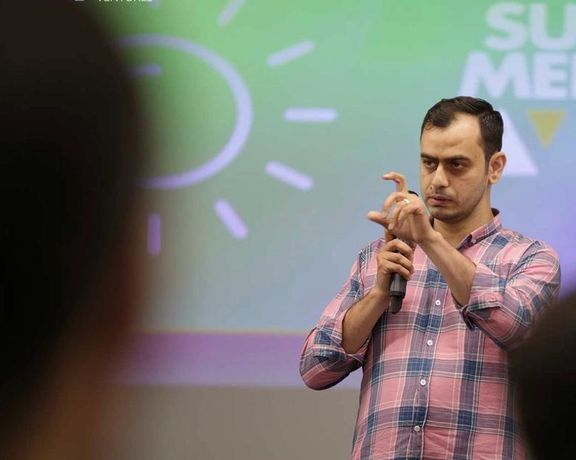
Glavin also mentioned the more recently revealed case of Hamid Rezazadeh, Iranian Vice President for Women and Family Affairs, Ensieh Khazali's son, who has been living and working in Canada for several years.
Khazali has denied her son's immigration to Canada and claimed he is there only on a short visit for further "knowledge-based" research. This is one of the favorite terms of Iran's Supreme Leader Ali Khamenei who has nicknamed the current year as "the year of knowledge-based production."
But social media activists have provided some evidence that Rezazadeh is running a company in Canada that sells a VPN application called Betternet to circumvent government censorship of the Internet inside Iran. Vice president Khazali is an advocate of limiting Iranians' access to the Internet.
According to National Post, applicants for the visa program are required to show that their business ideas are backed by at least $200,000 from one of a variety of federally designated organizations in Canada that operate as venture capital funds, “angel investor” groups or business “incubators.”
In May 2018, Betternet showed up in the Portfolio of 7 Gate Ventures’ investment, designated by Ottawa as a qualifying venture-capital company, as a VPN that promises access to blocked websites with a capacity to bypass internet censorship firewalls, encrypt data and guarantee online privacy, the National Post said.
Whistleblowers and activists in Iran have also revealed that some other hardliner officials’ children including Tehran Mayor Alireza Zakani, and former Majles Speaker Gholam Ali Haddad Adel are also living abroad.
Hardliners have used emigration issue against rivals including former moderate conservative former Majles Speaker Ali Larijani who was barred from running for president in 2021 on accusations that his daughter lived abroad.
In May this year, General Morteza Mirian, commander of Iran’s Revolutionary Guards’ ground forces, claimed that 4,000 relatives of “senior officials”live in the United States, Canada, and Europe.
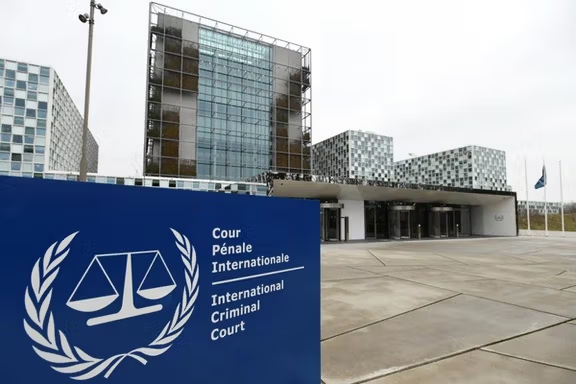
The families of victims aboard a Ukrainian flight that was shot down by Iran in 2020 called on the International Criminal Court to investigate the case as a war crime or crime against humanity.
Lawyers representing families said on Wednesday that the Association of Families of Flight PS752 Victims submitted an Article 15 Communication to Office of the Prosecutor of the ICC, providing information and evidence about crimes that occurred when Iranian missiles brought down Ukraine International Airlines Flight PS752.
The request was submitted in accordance with Article 15 of the Rome Statute, alleging that perpetrators have committed certain war crimes and crimes against humanity against the passengers and crew of flight PS752 and their surviving family members, including the war crimes of willful killing, intentionally directing attacks against the civilian population or civilian objects, outrages upon personal dignity and pillage, as well as other inhumane acts.
"The affected countries -- especially Canada -- have acted with a glacial pace that has been marred by bureaucracy and a wishful thinking attitude toward a meaningful negotiation with the Islamic Republic of Iran," said spokesperson for the association representing the families, Hamed Esmaeilion, whose wife and nine-year-old daughter died onboard the flight.
The airliner was shot down by two air-defense missiles fired by the IRGC on January 8, 2020, as it took off from Tehran’s Imam Khomeini International Airport. Only hours earlier, the IRGC had fired more than a dozen missiles at Iraqi bases hosting US and coalition troops in retaliation for the killing of the IRGC Qods Force Commander Ghasem Soleimani who was killed in Baghdad by a US drone strike just five days earlier.
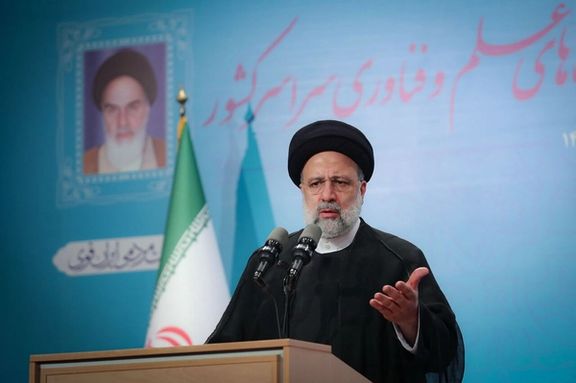
As pressure mounts on the Biden administration to deny visa for Iran’s president to attend the UN Assembly, the Senate is preparing a bill to bar all officials tied to the Supreme Leader.
Although the Biden administration says it is "obligated" to allow the hardline president Ebrahim Raisi into the country to attend the United Nations' General Assembly, Republican Senator Ted Cruz is circulating a bill that would alter the law to facilitate a visa ban on all Iranian officials sanctioned for their ties to Ali Khamenei, the country's ruler, the Washington Free Beacon reported on Wednesday.
The proposed bill is likely to attract bipartisan support due to the failure of an earlier pressure campaign over the Biden administration’s insistence on its obligation under US law to issue a visa. A bipartisan group of 52 US representatives wrote a letter to the White House earlier this month calling on President Joe Biden to deny "entry visas" for Raisi and his delegation.
However, Cruz’s proposed bill -- which may be cited as the "Strengthening Entry Visa Enforcement and Restrictions Act of 2022" or the "SEVER Act of 2022" -- would formalize efforts in Congress to pressure the administration into barring Raisi due to Tehran's active plots to assassinate US officials such as former secretary of state Mike Pompeo and former national security adviser John Bolton.
"The United States is absolutely able to deny entry to anyone who threatens our national security," Cruz told the Washington Free Beacon. "Raisi is a mass-murdering terrorist who was handpicked by the ayatollah -- and he's coming to the United States while there are Iranian agents trying to murder former American officials and dissidents on American soil."
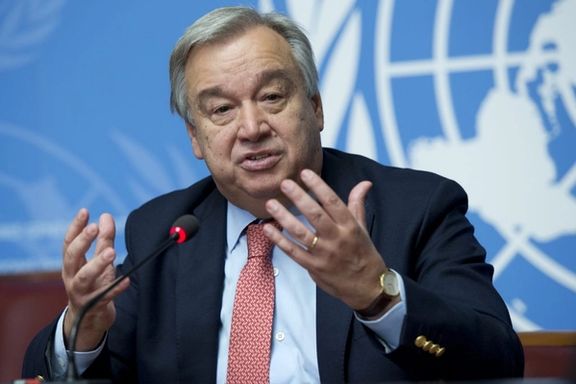
The UN Secretary-General called on Iran Wednesday to hold a “serious dialogue” with its nuclear watchdog, the IAEA, during the ongoing nuclear deal negotiations.
Ahead of the start of the UN General Assembly, Antonio Guterres said the International Atomic Energy Agency’s “independence exists, must be preserved and is essential. The IAEA cannot be an instrument of parties against other parties.”
Tehran’s demands that the IAEA shut its probe into suspected Iranian nuclear activity have become a key sticking point as the talks to revive the 2015 deal drag on.
Also on Wednesday, EU foreign policy chief Josep Borrell described the talks to bring Iran and the US back into the deal as an “stalemate,” saying that “I am afraid that with the political situation in the US, and so many directions without being conclusive, now we are going to stay in a kind of stalemate.”
He added that over the past couple of months, “the proposals were converging but unhappily, after the summer, the last proposals are not converging -- they are diverging,” highlighting that “The last proposals from the Iranians were not helping because we were almost there, then new proposals came and the political environment is not the most propitious. I am sorry to say, but I don't expect any breakthrough in the next days.” “From my side, I don't have anything more to propose.”
Later in the day, two-thirds of the IAEA's 35-nation Board of Governors endorsed a non-binding statement by the United States, Britain, France and Germany pressing Iran to explain about uranium traces found at three undeclared sites.
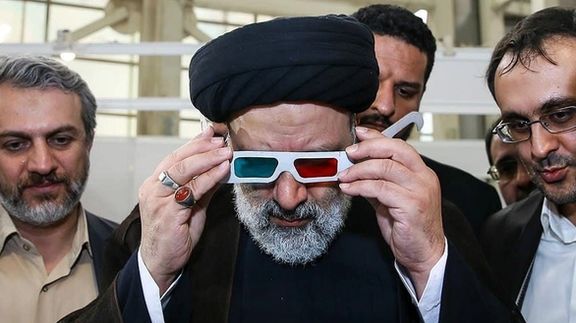
The revelation that Iran’s president Ebrahim Raisi has no Twitter account has caused a fiasco, because an existing account was tweeting in his name until now.
Mohammad-Mehdi Rahimi, head of Raisi’s public relations office on Tuesday said the president has no account on Twitter. The announcement has left many wondering about the identity of those behind the account thought to be the president's official account, as it introduces itself. The account has been tweeting in his name since before he won the controversial presidential elections of June 2021.
According to Twitter the account was created in March 2021. It has been in regular use since May 26, 2021, more than 3 weeks before the election, and has over 173K followers including Chief Justice Gholam-Hossein Mohseni Ejei, Vice President Mohammad Mokhber, Foreign Minister Hossein Amir-Abdollahian, and the official news agency IRNA. The last tweet from the account which posted a quote from the president was posted on August 12th.
Most official news agencies and pro-Raisi news websites retweeted the tweets from @raisi.com account in Raisi's name throughout this time but the president’s media team never denied their authenticity until now.
“Denial of authenticity of Raisi's Twitter is one of the greatest blunders of the president’s media team … The question arises, if the account belongs to him, how come nobody is taking responsibility for it. Has something been said there that doesn’t suit the purposes of Raisi's team?” reformist Rouydad24 asked Wednesday.
The second scenario is that there is a Twitter account in Raisi's name that nearly all ministers, vice presidents, as well as the official government and cabinet accounts follow, retweet, and quote but nobody knows who it belongs to, Rouydad24 added.
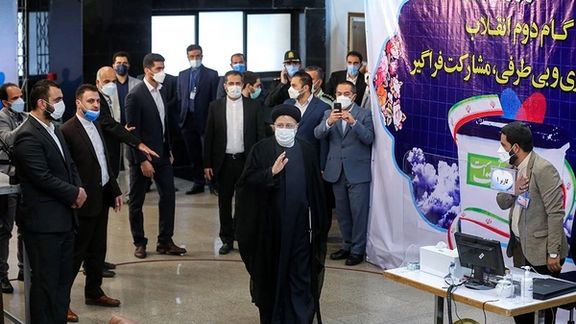
“This is even a bigger blunder. One should ask not only the administration’s media team, but also security and intelligence bodies, how such a blunder could happen without anyone noticing?How is it that a fake Twitter account was publishing the Iranian government and president’s official stances, and no one investigated the matter for once?” Rouydad24 asked.
The semi-official Iranian Students News Agency, ISNA, was the first to report on June 1, 2021 that Raisi had officially joined Twitter. ISNA provided a link to the account.
Many of the earlier tweets posted on the account were written in first person voice and expressed then-Chief Justice and presidential candidate Ebrahim Raisi’s views on domestic and foreign policies, including accusations against his predecessor’s government and his election rivals.
“I have been making calls and consultations to make the elections more competitive and inclusive, which you and [the disqualified candidates] themselves may not know about, since yesterday evening when I found out about the vetting results,” the very first tweet made from the account said.
The tweet referred to the controversial disqualification of three of Raisi’s main rivals -- former parliament speaker Ali Larijani, former president Mahmoud Ahmadinejad and Vice President Es’haq Jahangiri – by the election watchdog, the Guardian Council.
Later tweets, after Raisi took office, often described his administration's approach to US sanctions, negotiations to restore the 2015 nuclear deal with world powers (JCPOA), selling oil, and regional and international matters. These tweets were regularly quoted by both domestic and foreign media.
Instagram is the only major social media platform not blocked in the country where other platforms such as Twitter, Facebook, YouTube, WhatsApp, and Telegram cannot be accessed without the use of anti-filtering software and VPNs (virtual private networks).